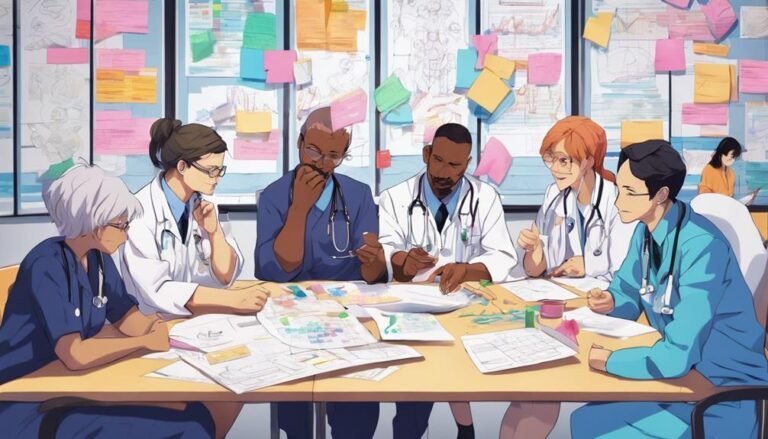Advancing Your Career as a Toxicologist: Essential Skills and Experience
Toxicologists play a critical role in safeguarding both public health and the environment. Their work involves analyzing the impact of chemicals and substances on living organisms, ecosystems, and communities. Toxicologists often collaborate with scientists, policymakers, and businesses to ensure that the environment remains safe from harmful substances. For those looking to excel in this field, advanced education and specialized skills are essential.
Here’s how you can advance your career in this essential field:
Understanding the Role of a Toxicologist
Toxicologists are responsible for studying the harmful effects of chemicals, biological agents, and physical agents on humans, animals, and the environment. Their work helps create safety guidelines, protect communities, and ensure that products such as food, pharmaceuticals, and household items meet safety standards.
In practice, toxicologists may conduct research on the environmental impact of industrial activities, develop safety standards for hazardous substances, and contribute to public policy by assessing risks associated with exposure to toxic materials. Their contributions are vital in protecting public health and ensuring environmental sustainability.
Advancing Your Career with Education
Education is a crucial component for advancing your career as a toxicologist. Having a bachelor’s degree in a related field is just the beginning; further studies, especially at the graduate level, will significantly enhance career prospects. Specialized programs, such as a Master of Science in Public Health with a focus on Industrial Hygiene, provide individuals with the knowledge and skills to excel in fields like environmental toxicology and industrial safety.
Such programs are designed to deepen understanding of environmental hazards, chemical risk assessment, and health impacts from exposure to toxic substances. An online format allows working professionals to gain advanced skills without disrupting their careers.
This flexibility makes it easier to balance work and study, enhancing learning outcomes while contributing to the toxicologist work environment, which often requires field-based and lab-based research combined with real-world applications. Graduates from these programs are equipped to analyze risks, formulate safety measures, and provide expert guidance on managing exposure to hazardous materials.
Essential Skills Every Toxicologist Needs
To thrive in toxicology, professionals need a diverse skill set. Key competencies include analytical thinking, a deep understanding of chemistry and biology, and the ability to conduct complex experiments and interpret results. Familiarity with toxicological databases, software, and methodologies is critical for analyzing large amounts of data, assessing risk, and making informed decisions.
In addition to technical skills, toxicologists must be proficient in communication. Whether working within a team, writing reports, or presenting findings to regulatory agencies or the public, the ability to clearly convey complex information is essential. Furthermore, problem-solving skills are necessary to design experiments and troubleshoot issues that arise during research or fieldwork.
Gaining Hands-On Experience
Hands-on experience is invaluable in toxicology. Theoretical knowledge alone is not enough; gaining practical exposure to laboratory and field research is crucial. Internships, fellowships, and entry-level positions in environmental agencies, research labs, or public health departments provide opportunities to work under experienced professionals while honing technical skills.
Through hands-on work, toxicologists learn to perform chemical analyses, assess environmental samples, and interpret data in real-world settings. This experience is crucial for moving into higher-level positions and can set candidates apart in a competitive job market. Furthermore, working in diverse environments, such as government agencies, private companies, or non-profit organizations, can broaden a toxicologist’s expertise.
Understanding Different Specializations in Toxicology
Toxicology is a vast field with several areas of specialization. Some toxicologists focus on environmental toxicology, where they study how chemicals affect ecosystems. Others specialize in forensic toxicology, analyzing substances in criminal investigations. Regulatory toxicologists work with government agencies to develop safety standards, while industrial toxicologists focus on protecting workers in hazardous environments.
Each specialization requires different knowledge and expertise. For instance, environmental toxicologists must be adept at environmental science and ecology, while forensic toxicologists need a strong background in chemistry and legal processes. Specializing allows toxicologists to focus on specific challenges and develop a deep expertise in a chosen field.
The Future of Toxicology and Emerging Trends
Toxicology is an evolving field, and staying on top of emerging trends is essential for long-term career success. One of the biggest trends currently shaping the field is the increasing focus on environmental sustainability and chemical safety. As industries move towards greener practices, there is growing demand for toxicologists to assess the environmental impact of chemicals and ensure that new materials and substances do not pose a risk to public health or the environment.
Additionally, advancements in technology are having a significant impact on toxicology. Innovations in data analysis, computational toxicology, and high-throughput screening techniques are helping toxicologists analyze substances more efficiently and accurately. These technological advances enable quicker and more precise risk assessments, allowing toxicologists to identify hazards earlier in the process.
The future also holds exciting opportunities in fields like nanotechnology and biotechnology, where toxicologists will play a critical role in ensuring the safety of emerging materials. With the growing global emphasis on environmental health and chemical regulation, toxicologists will continue to be in high demand to support public health, sustainability, and regulatory efforts.
Career Advancement and Opportunities
Toxicology offers a variety of career paths, from regulatory positions in government agencies to research roles in private industry and academia. One of the key benefits of working in toxicology is the broad range of industries that require expertise in chemical safety and risk assessment. Toxicologists can advance their careers by taking on leadership roles, transitioning into consulting, or even specializing in niche areas of the field.
For example, toxicologists may move from entry-level laboratory positions to senior research roles or policy advisory positions within regulatory agencies. Those with experience may eventually step into management roles, overseeing teams of scientists and managing large-scale environmental or safety projects.
Additionally, toxicologists with specialized expertise, such as in industrial hygiene or environmental sustainability, may transition to consulting, helping companies meet safety regulations or providing guidance on environmental protection.
Networking, attending conferences, and staying current on industry trends are important aspects of career advancement. These activities provide toxicologists with new opportunities, ensuring they remain competitive in a rapidly evolving field.
Advancing in the field of toxicology requires a commitment to education, practical experience, and the development of specialized skills. By pursuing advanced degrees, gaining hands-on experience, and selecting an area of specialization, toxicologists can significantly enhance their careers.
With a solid foundation in toxicological science and the ability to work in diverse environments, professionals in this field are well-equipped to address the challenges posed by chemical and environmental hazards. Whether through advanced study or professional development, the path to success in toxicology is one of continuous learning and growth.







